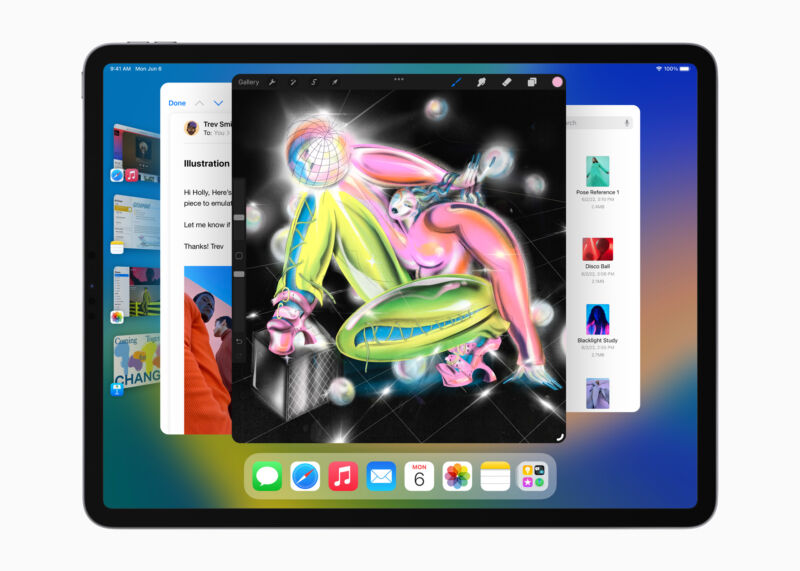
iOS 16 drops support for a few generations of older iPhones, including most hardware that used Apple’s A9 or A10 chips. Usually, iPadOS follows suit when iOS drops older hardware, but it looks like iPadOS 16 will be more forgiving of iPads running older chips.
According to Apple’s press release, iPadOS 16 will run on the following models:
- Fifth-generation iPad and newer (that’s the one from 2017, the first $329 iPad).
- iPad Air (3rd generation) and newer.
- iPad mini (5th generation) and newer.
- All iPad Pro models.
That means that 2014’s iPad Air 2 (which Apple sold for years as a lower-cost model, before the $329 iPad came along) and 2015’s iPad mini 4 won’t support the new OS but that most other models that can upgrade to iPadOS 15 will also be able to run iPadOS 16. Apple may continue to provide iOS and iPadOS 15 security updates for devices that can’t upgrade to iPadOS 16, but we’ll need to wait for confirmation before we know that for sure.
As with most Apple software releases, not all iPad hardware will be able to take advantage of every one of iPadOS 16’s new features. Some of the advanced features Apple bragged about, including virtual memory-swapping, require an iPad Pro or sixth-gen iPad Air with an Apple M1 chip.
But by and large, Apple’s compatibility cutoffs for iOS and iPadOS seem to have more to do with when devices were introduced than they do with the hardware inside. Hardware from 2014, 2015, and even 2016—the iPad Air 2, the iPhone 7, and the first-gen iPhone SE—is generally getting dropped. Hardware released in or after 2017 is generally being supported.
https://arstechnica.com/?p=1859169

